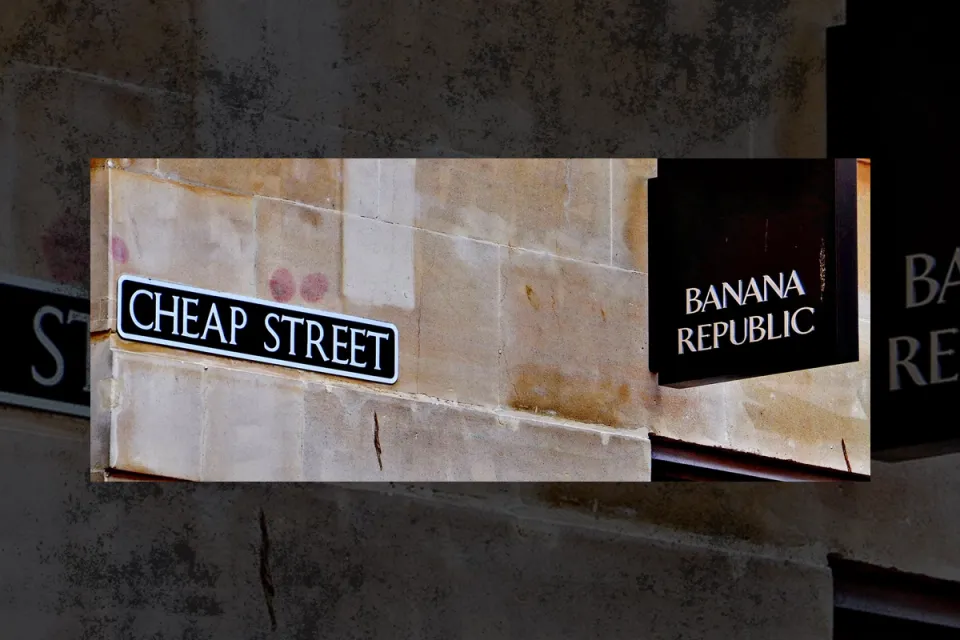DBTG : Cheap Promoter

As a professional in the music industry, I've seen countless instances of local promoters / hospitality managers cutting corners to save money, often to the detriment of the artists they're working with. These shortcuts might seem like a good idea at the time, but they can ultimately harm the reputation of the venue or yourself and make it difficult to attract top-tier talent in the future. In this article, I want to highlight some of the most egregious examples of corner-cutting and explain why it's important to avoid them.
Don't be that guy who: Skimps on sound equipment
One of the most essential components of any successful live music event is high-quality sound equipment. On the rare occasion that you have to rent shit, because of a fly-in show for example, be really careful. From speakers and amplifiers to mixers and microphones, every piece of gear plays a critical role in ensuring that the audience can hear and appreciate the music. Unfortunately, some local promoters try to cut corners by using subpar or outdated equipment, or by hiring inexperienced sound technicians who don't know how to properly set up and operate the gear. Bonus : Drunk as f@ck local sound guys that don't accept any help and get aggravated easily. EXCELLENT :D
This kind of shortcut can have disastrous consequences. If the sound quality is poor or inconsistent, it can be extremely difficult for the performers to deliver a great show, and the audience is likely to be disappointed as well. In the worst cases, technical problems can even damage the equipment or cause hearing damage to the audience. For all of these reasons, it's essential to invest in high-quality sound equipment and hire experienced technicians who know how to use it properly. The audience pays all of us. Respect them.
Don't be that guy who: Ignores safety protocols
Another common shortcut that some local promoters take is to ignore safety protocols in an effort to save time or money. This might include things like failing to conduct proper fire safety inspections, neglecting to train staff on emergency procedures, or ignoring local building codes and regulations. While it might seem like a minor issue, these kinds of shortcuts can have extremely serious consequences in the event of an emergency.
If a fire breaks out or there's a medical emergency, the venue needs to have a well-defined and practiced emergency plan in place to ensure that everyone can evacuate safely and quickly. If safety protocols have been ignored or neglected, it can be extremely difficult to respond to these kinds of situations, and the results can be catastrophic. For this reason, it's essential to take safety protocols seriously and make sure that all staff are trained and prepared to respond to any kind of emergency.
Don't be that guy who: Goes Cheap mode on the Hospitality Rider
Some promoters or venue managers may try to cut corners by not providing everything outlined in the hospitality rider or by providing lower-quality versions of the requested items. For example, instead of providing the requested organic food, they may offer non-organic options or even fast food. Alternatively, they might not provide enough food or drink to satisfy the performer's needs. My personal favorites : Reis mit Scheiss, pasta with ketchup, or other "Vegan" stuff that we use to feed the animals back in Greece.
While it may seem like a minor issue, skimping on the hospitality rider can be extremely harmful to the performer's experience and ultimately to the success of the event. Musicians and performers often have grueling tour schedules, and they rely on the hospitality rider to ensure that they have everything they need to stay healthy and comfortable on the road. By failing to provide what is requested, promoters or venue managers can create an unpleasant experience for the performer, which can affect their performance on stage. Don't test the tour manager. Save yourself the stress of not having a show at all because you tried to save that 50 bucks worth of ham and cheese.
Dont be that guy who: Fails to Communicate Properly
Good communication between the promoter and the tour manager is absolutely essential for the success of any event. The tour manager is responsible for ensuring that the performer has everything they need to put on a great show, while the promoter is responsible for organizing the event and making sure that everything runs smoothly. Without effective communication between the two parties, things can quickly go wrong and cause a lot of unnecessary stress and frustration.
First and foremost, good communication ensures that both parties are on the same page regarding the logistics of the event. This includes things like load-in and load-out times, sound check schedules, and any special requirements or requests that the performer may have. By communicating clearly and effectively, the promoter and tour manager can work together to create a seamless experience for the performer, which will ultimately translate to a better experience for the fans.
Good communication also helps to prevent misunderstandings and errors. For example, if the promoter is not aware of a particular request or requirement from the performer, they may inadvertently fail to provide it, which could create unnecessary stress and anxiety for the tour manager and performer. By communicating regularly and clearly, these misunderstandings can be avoided, and both parties can ensure that all of the necessary requirements are met.
In addition to these practical benefits, good communication can also help to build a strong and positive relationship between the promoter and the tour manager. By demonstrating a willingness to work together and be flexible when necessary, the promoter can earn the trust and respect of the tour manager, which can pay dividends in the long run. This can lead to more opportunities to work together in the future and can help to establish the promoter as a trusted and reliable partner for touring acts.